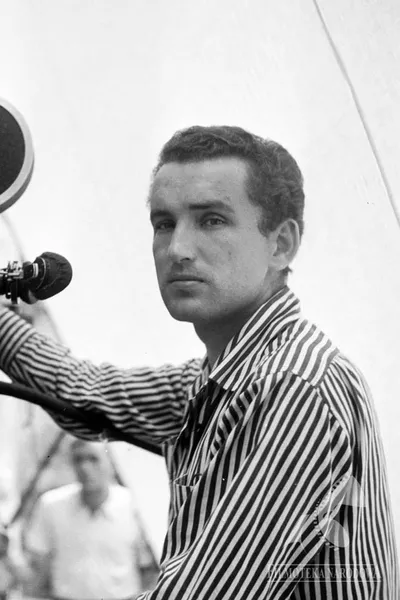
Jerzy Wójcik
Jerzy Wójcik (12 September 1930 – 3 April 2019) was a Polish cinematographer, author of screenplays and film and television director.
Jerzy Wójcik graduated from the cinematography department of the Łódź Film School in 1955. He started working in film in 1956 as an assistant to cameraman Jerzy Lipman. He was a camera operator for Andrzej Wajda’s Kanał and Jerzy Kawalerowicz’s Prawdziwy Koniec Wielkiej Wojny / Real End of the Great War. Jerzy Wójcik’s name is linked to the films of ‘Polish school’ directors Andrzej Wajda and Andrzej Munk. His full-length feature debut as a cameraman was Munk’s Eroica in 1957. Two years later he was the cinematographer for Wajda’s Popiól i Diament / Ashes and Diamonds. Wójcik was also the cinematographer for several other films by Andrzej Wajda as well as films by Kazimierz Kutz, Stanislaw Różewicz, and Jerzy Kawalerowicz.
In 1981 to 1982, Jerzy Wójcik taught cinematography at the University of Silesia in Katowice. Since 1982 he taught at Łódź Film School. He has also worked as a film director, with projects such as Lament in 1991 and Wrota Europy / The Gateway of Europe in 1999 to his credit. Jerzy Wójcik also wrote a book, Labirynt Światła / Labyrinth of Light, describing his professional experiences and presenting his philosophical reflections.
Jerzy Wójcik has received some prestigious film industry awards, including the ‘Golden Camera 300’ for his lifetime achievement as a cinematographer at the International Cinematographers’ Film Festival in Bitola, Macedonia (1999), and the ‘Vitae Valor’ award for lifetime achievement at the third ‘Vitae Valor’ Film Festival in Tarnów. Jerzy Wójcik’s star in the Avenue of the Stars in Piotrkowska Street in Łódź was unveiled in 2002.
Known for
Camera
Place of birth
Nowy Sącz, Poland
Birthday
12 September 1930